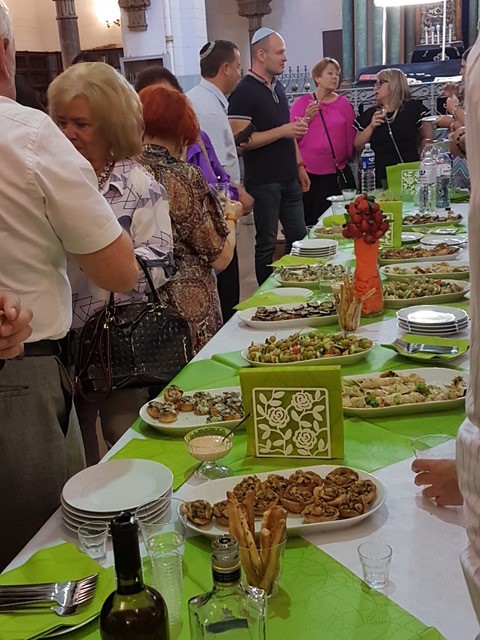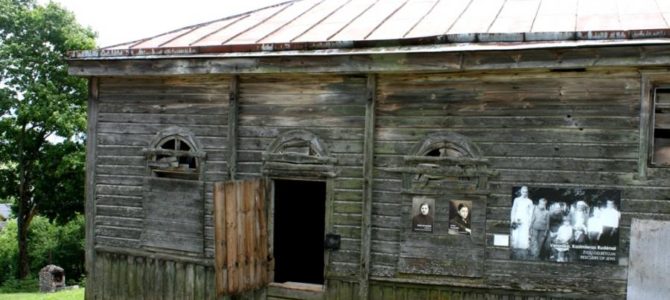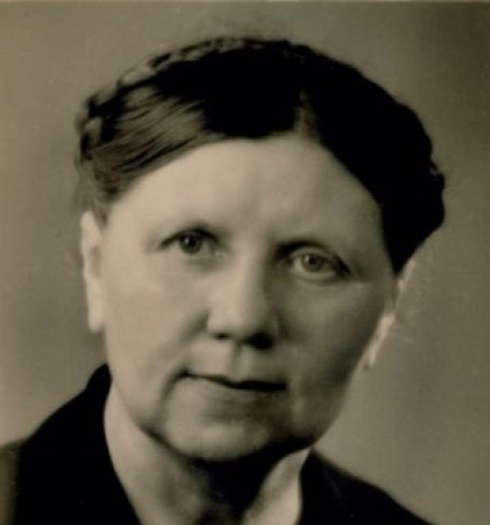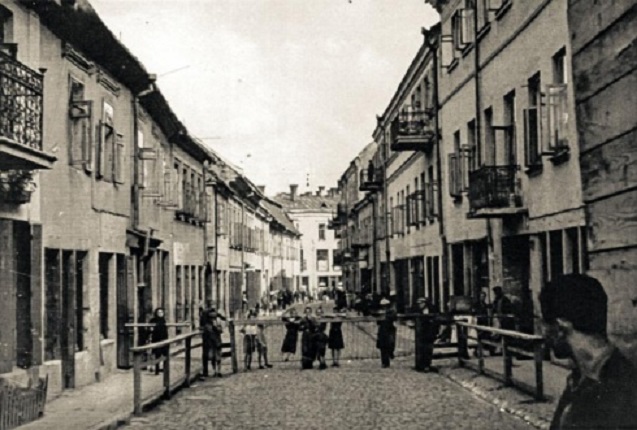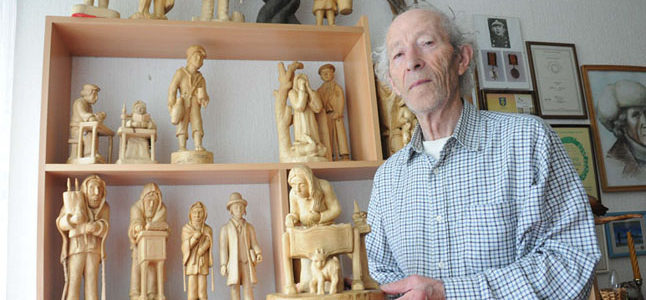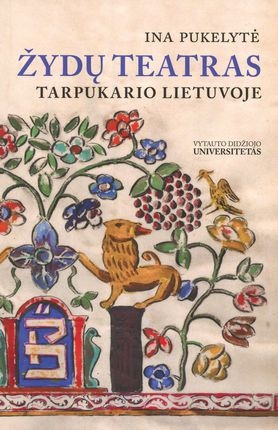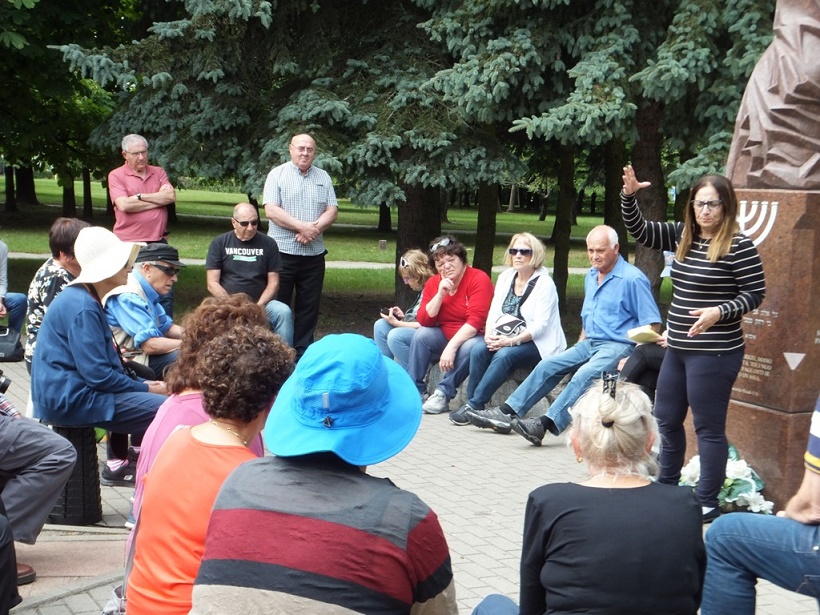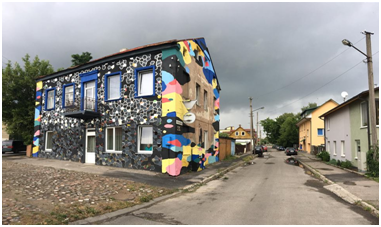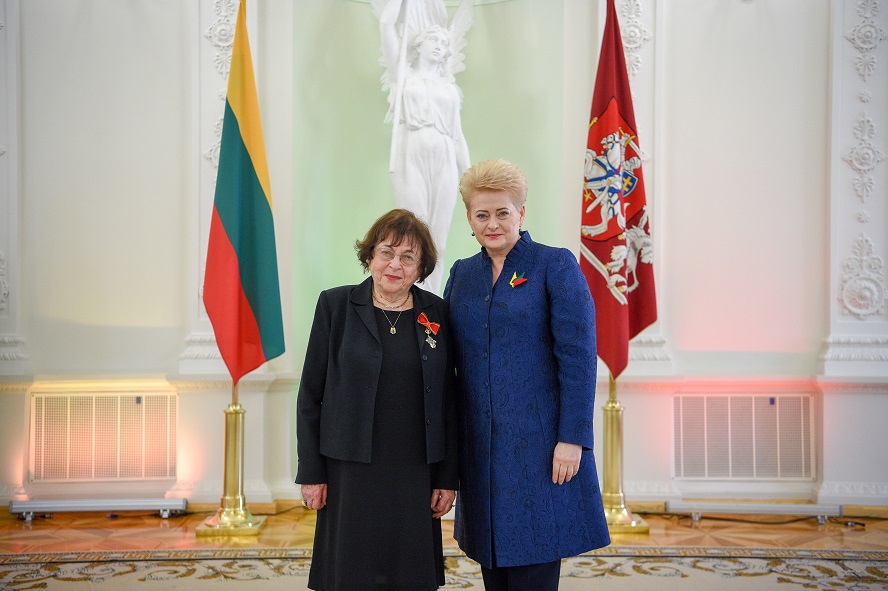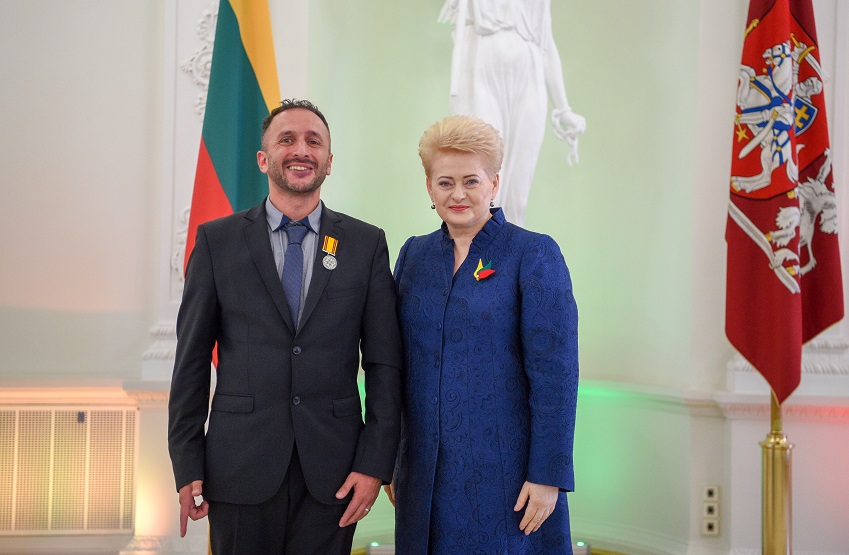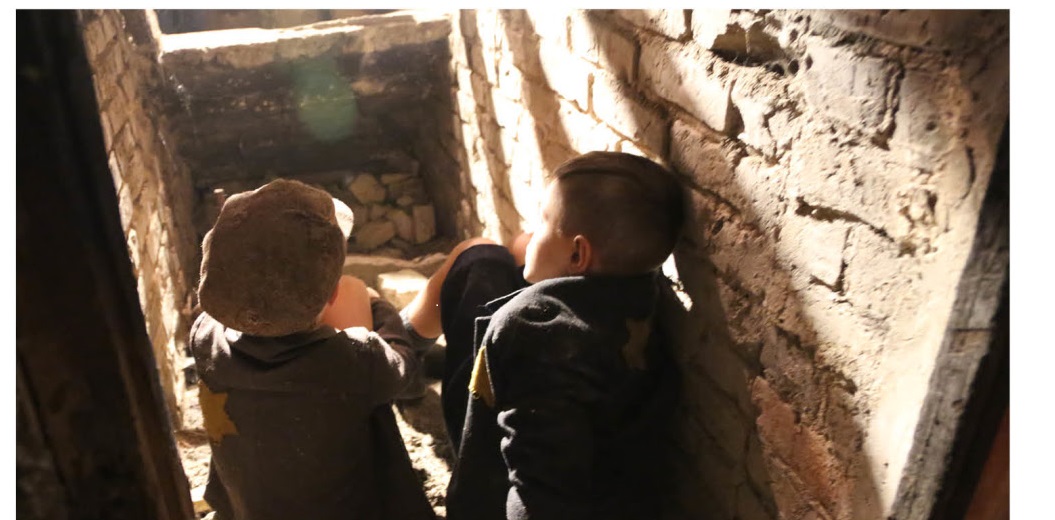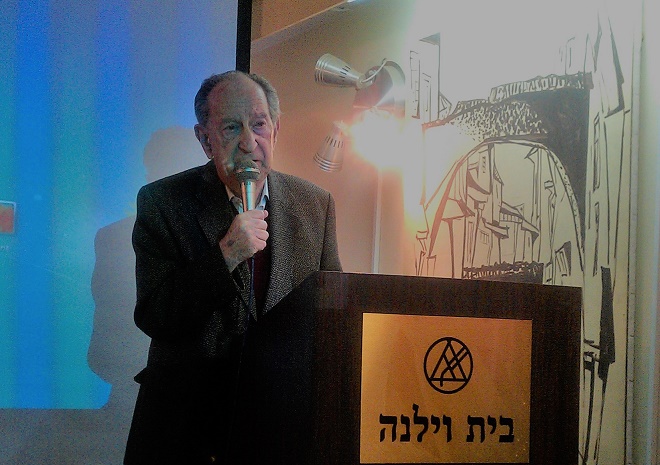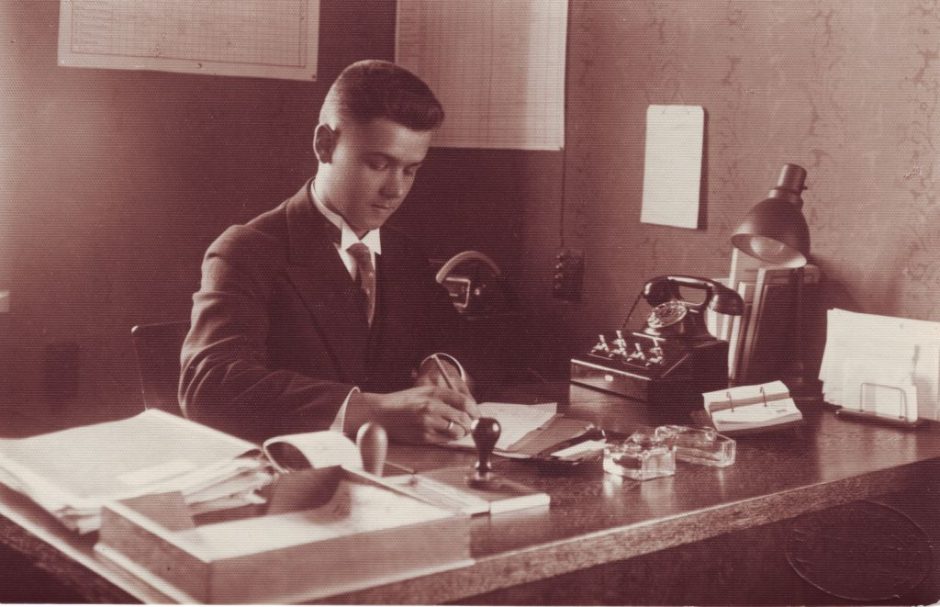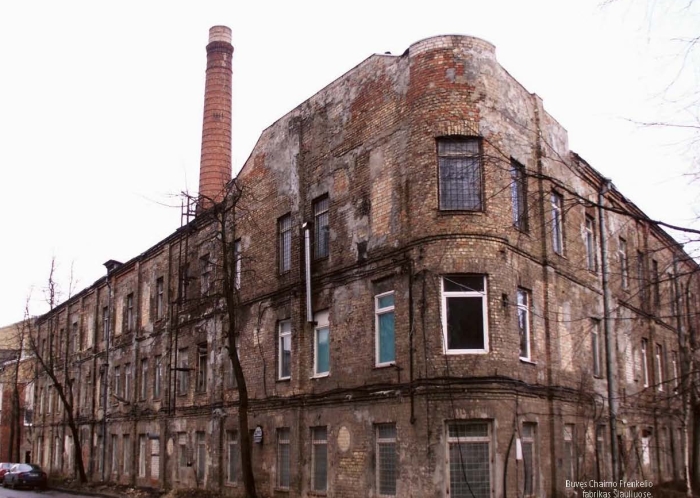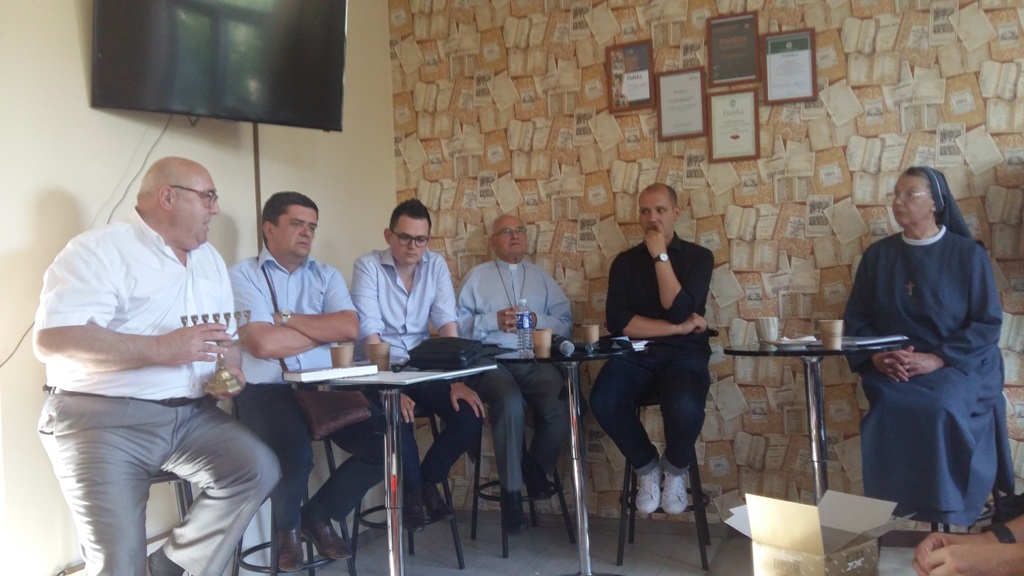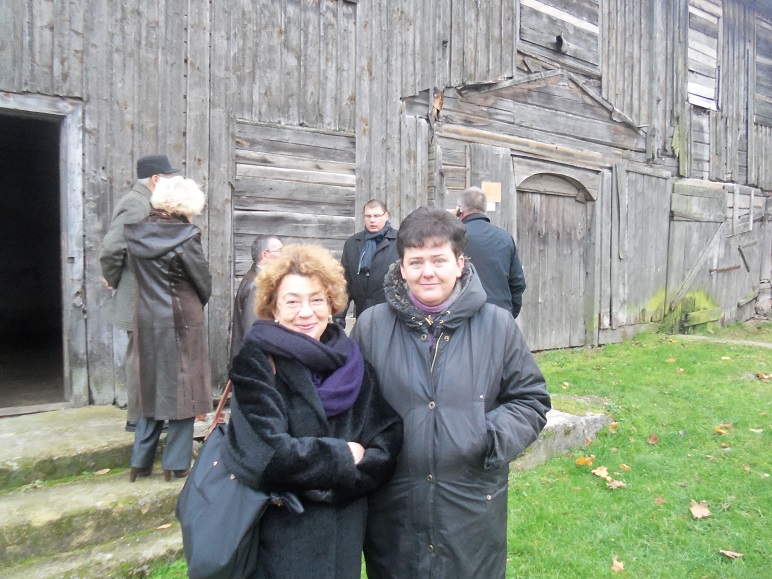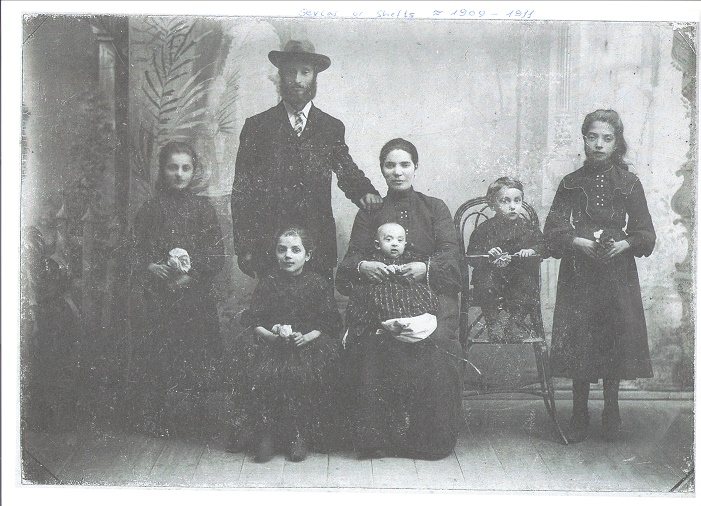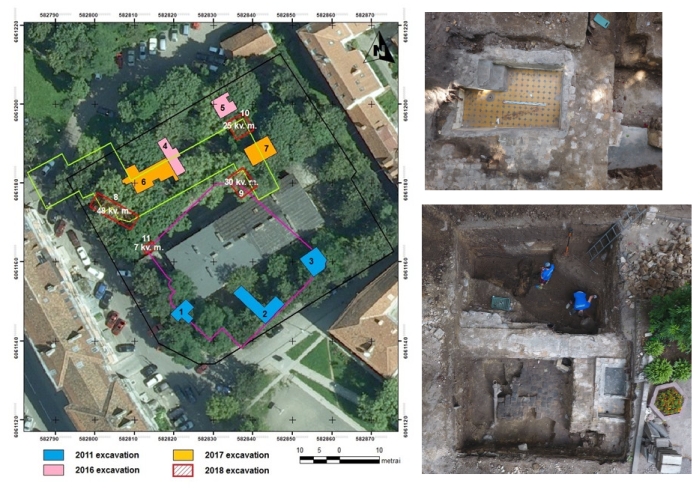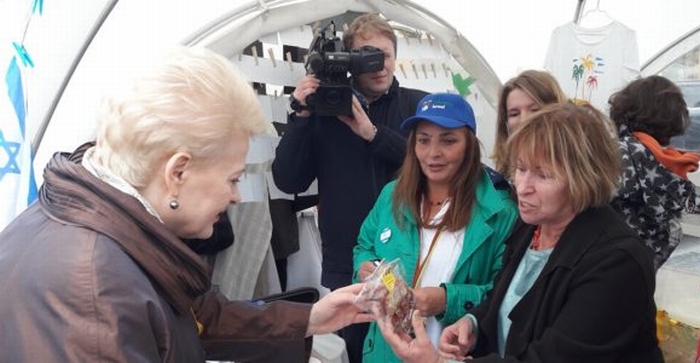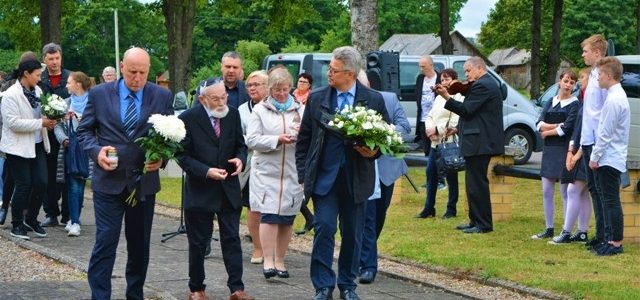
Seventy-seven years ago, on July 3, 1941, the first mass murder of Jews was carried out in Jurbarkas (Yurburg), Lithuania. The number murdered was 322 people, including about 20 ethnic Lithuanians (including Jurbarkas sculptor Vincas Grybas). The Jurbarkas community remembers this tragedy every year and holds an Hour of Memory at the grave site of the victims of the genocide, attended by local residents and friends and family of the Jews who lived in Jurbarkas and experienced the Holocaust there.
This year representatives of the Jurbarkas regional administration including deputy mayor Saulius Lapėnas, administration director Vida Rekešienė, Culture and Sports Department chief Antanas Gvildys, Jurbarkas alderman Audronis Kačiušis and staff from the Jurbarkas Regional History Museum and Jurbarkas Cultural Center attended along with victims and relatives the July 3 Hour of Memory held at the Jurbarkas Cultural Center.
Former Jewish Jurbarkas resident Jakovas Rikleris travelled from Germany to the event and said: “I am so glad you have not forgotten and maintain this site so dear to us, the old Jewish cemetery. There were extraordinarily noble, brave people from the land of my birth, from the area around Jurbarkas, people who were unable to remain uncaring seeing these brutal massacres. These people are immeasurably brave, in fear of the mortal danger they rescued Jews, hid them, shared their meager wartime food provisions with them and believed that in saving people from death they were performing the most important duty, sacrificing themselves for the lives of other innocent people. These are the true people of the Lithuanian nation.”
Young actors from the Jurbarkas Cultural Center’s children and youth theater Vaivorykštė under the direction of Birutė Šneiderienė read selections from Grigori Kanovich’s Shtetl Love Story and compositions by Jurbarkas composer Kęstutis Vasiliauskas were performed on violin.
